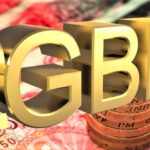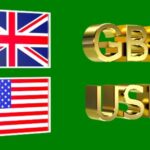Asian equities fall after the BoE rate shocker and strong inflation in Japan. Greater rate increase than anticipated by BoE Jolted markets
Asian markets weighed by Rising Persisting Inflation in UK and Japan
On Friday, the majority of Asian markets fell strongly as fears over monetary policy tightening. Were stoked by the BoE larger-than-expected rate increase and by a stronger-than-expected reading on consumer price inflation in Japan.
Adding to the BoE decision, the slightly aggressive testimony of Fed Chair Jerome Powell at Congress. Who said that the bank might hike interest at least twice more during the year, hurt risky markets.
Concerns about tighter global monetary policies increased as a result of both of these causes. While markets strongly sold risky, rate-sensitive securities.
The weakest performance in Asia was Hang Seng, which fell 1.8 percent in current trading following a vacation on Thursday. Chinese markets on a larger scale were off today. Although they remained weaker on Wednesday after an uninspiring rate decrease in the nation.
Despite statistics showing modest recovery in industrial while service sector output during June, South Korea’s KOSPI declined 0.7 percent while Australia’s ASX 200 sank 1.1 percent.
Japanese shares decline as inflation rises faster than anticipated.
Following statistics revealed that CPI increased above what was anticipated in the entire year to May. The Nikkei 225 index and TOPIX both plummeted 1.5% and 1.7 percent
A figure that indicated inflation minus food and energy expenses soared to a new 42-year peak in May. Despite an overall inflation being below the previous month. Showing the fundamental Japanese inflation stayed strong.
Inflationary trends might also possibly counteract the Japanese economy’s current strength. That has drawn significant foreign capital into domestic markets.
The elevated inflation number served as a stimulus for investors to preserve recent improvements for the Japanese market. Early during the week, the stocks Nikkei & the TOPIX soared to 33-year peaks.
Forex Market Reaction
The US dollar increases when fear of risk is sparked by assertive central banks
Opening Friday trading across Europe saw an increase in the value of the U.S. currency as a wave of risk avoidance. Which resulted from stronger monetary tightening by a number of central bankers, notably the BoE
The Dollar Index, which compares the value of the dollar was trading up 0.3 percent at 102.280 by 02:00 ET (06:00 GMT),.Barely over its most current a month’s bottom.
After a significant BOE rise, the pound suffers
GBPUSD struggled, dropping 0.3 percent to 1.2706. After temporarily rising in the aftermath of the BOE rate rise of 50 bps on Thursday to a level close to a year’s top.
Before the publication of the PMI surveys for the area. The euro slipped 0.3 percent to 1.0930 zone.
Although a slowdown in activity is mostly anticipated, strong data might hurt the euro. Since they portend higher interest rates in an area. That entered an economic downturn during the fQI in the year.
Despite the fact suggesting the core CPI in Japan jumped to a 42-year peak during the month of May., Signaling suggesting actual Japanese inflation stayed hot. The AUDUSD sank 0.9 percent to 0.6694. Whereas the USDJPY increased 0.2 percent to 143.37.








